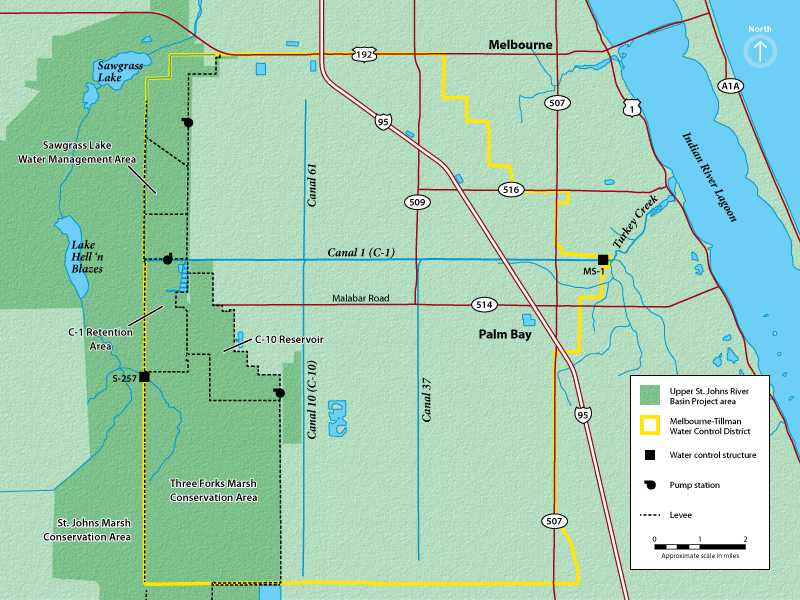History:C-1 Canal Flow Reversed 2017-05-11
| Name | C-1 Canal Flow Reversed |
|---|---|
| Date | May 11, 2017 |
| Description | This project diverted canal flows from the 100-square-mile Melbourne-Tillman Water Control District away from Turkey Creek and the Indian River lagoon, returning up to 43 percent of the drainage district’s discharges to the Upper St. Johns River Basin. |
| Region | Brevard County |
| Water | Indian River |
| Source | St. Johns River Water Management District |
The Canal 1 Rediversion Project
Decades of drainage into Turkey Creek in southern Brevard County degraded water quality, habitat and the fisheries in the central Indian River Lagoon estuary, causing a need for a massive restoration effort.
Canal 1 (C-1) is maintained by the Melbourne-Tillman Water Control District to provide flood protection to more than 80,000 people. The canal carries soils, nutrients (nitrogen and phosphorus) and large volumes of freshwater from the historic St. Johns River floodplain eastward to Turkey Creek and into the lagoon.
The western two-thirds of the city of Palm Bay is within the St. Johns River’s historic drainage basin. Prior to the 1920s, these swampy lands were separated from Turkey Creek and the lagoon by the Ten-Mile Ridge — an old sand dune system that served as a natural basin divide and upon which a portion of Interstate 95 was built.
The Ten-Mile Ridge was breached in 1922, and a 180-mile grid of 80 canals was dug to divert stormwater to Turkey Creek. This canal system drained the natural wetlands for conversion to agricultural use.
The St. Johns River Water Management District and the Melbourne-Tillman Water Control District have re-diverted a substantial portion of the C-1 drainage to a retention area west of I-95.
Stormwater stored in the retention area is pumped into a wetland treatment system, known as Sawgrass Lake Water Management Area, before draining into the St. Johns River. The Sawgrass Lake Water Management Area provides the filtration needed to remove pollutants before water drains into the river.
